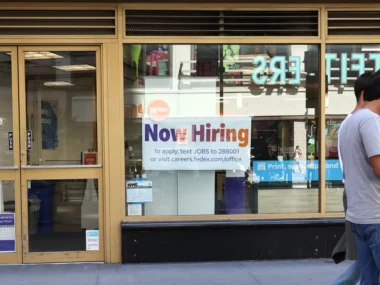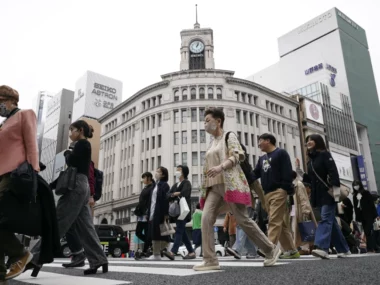Investors are showing optimism for a soft landing, believing that the Federal Reserve’s efforts to control inflation won’t lead to a recession. However, history suggests caution may be wise.
The positive aspects include the fact that despite recession fears last year, the US economy has demonstrated resilience. Inflation is moderating and is closer to the Federal Reserve’s 2% target. Policymakers are considering interest rate cuts, having raised rates 11 times in the past two years while maintaining a low unemployment rate.
Additionally, pandemic-era savings have lasted longer than expected, with consumers remaining confident and spending. This optimism contributed to a substantial market rally in the latter half of the previous year.
US Treasury Secretary Janet Yellen has even described the current situation as a “soft landing,” a shift from her previous, more cautious stance.
However, historical data and other factors raise concerns. Deutsche Bank’s Jim Reid points out that there is typically a long lag between elevated interest rates and their economic impact. Past recessions have often occurred 19 to 28 months after the first Fed rate hike, indicating a potential risk of recession in the near future.
Moreover, the mention of a soft landing has increased in media articles ahead of previous recessions, such as those in 2001 and 2008. The inversion of the yield curve, where long-term bond yields fall below short-term yields, has also preceded the last ten US recessions.
Despite the resilient US consumer, credit card delinquencies are at their highest levels in over 12 years, which is a concerning sign. Geopolitical tensions, including Russia’s actions in Ukraine and conflicts in the Middle East, add uncertainty to the global landscape.
The possibility of a US government shutdown, a large budget deficit, and the upcoming presidential election further complicate the economic outlook.
While the S&P 500 performed well in the previous year, much of this growth was driven by the tech giants collectively known as the Magnificent Seven.
In summary, there are many factors at play, and the outcome remains uncertain. Investors must decide whether to rely on current data, which points to a soft landing, or consider historical trends that raise concerns about a potential recession.
This week holds significant importance for Bitcoin.
This week holds the potential for significant changes in the world of cryptocurrencies, particularly for the largest one, Bitcoin.
In the coming days, the United States Securities and Exchange Commission (SEC) is anticipated to approve the very first spot Bitcoin exchange-traded fund (ETF) in the United States. It’s worth noting that existing Bitcoin ETFs typically hold related assets or Bitcoin futures contracts instead of the cryptocurrency itself. The SEC is currently reviewing applications for 13 Bitcoin ETFs submitted by major firms like BlackRock and Fidelity.
ETFs have witnessed a surge in popularity in recent years, and proponents of cryptocurrencies are hopeful that the SEC’s approval, known for its stringent stance on digital assets, could legitimize Bitcoin in the eyes of everyday American investors.
In anticipation of this development, Bitcoin prices have been on the rise, experiencing a roughly 60% increase in value over the past three months.
However, it’s important to note that Gary Gensler, the Chairman of the SEC, issued a warning to retail investors on Monday as they await the SEC’s decision. He emphasized the exceptionally risky and volatile nature of investments in cryptocurrency assets, highlighting the past insolvencies and losses that some major platforms and crypto assets have experienced.
The final decision on the Bitcoin ETF is expected to be announced by January 10.
Apple is confronting a pivotal moment as it faces increasing scrutiny over antitrust concerns.
The possibility of an antitrust lawsuit against Apple by the federal government could mark a significant turning point for the company, according to Brian Fung, a colleague. There is growing speculation about a potential landmark case following a report by The New York Times, which suggests that the Justice Department is in the final stages of a lengthy investigation into Apple, possibly resulting in a lawsuit later this year.
The investigation reportedly encompasses various aspects of Apple’s operations, ranging from the seamless integration between the iPhone and Apple Watch to the company’s digital payments system. It also examines Apple’s use of green text bubbles to distinguish Android text messages from iMessage communications. In essence, it represents a comprehensive examination of Apple’s tightly controlled, walled-garden ecosystem, which has propelled it into becoming a $2.8 trillion company.
Apple, currently the world’s most valuable company, has been the only major tech giant that the US government has not yet sued on antitrust grounds in recent years. If antitrust officials decide to take legal action against Apple, it is expected to be a substantial challenge to Apple’s business. According to Adam Wolfson, an antitrust attorney at the law firm Quinn Emanuel, it could potentially target many aspects of how Apple conducts its business and maintains its status as one of the most profitable companies globally.











